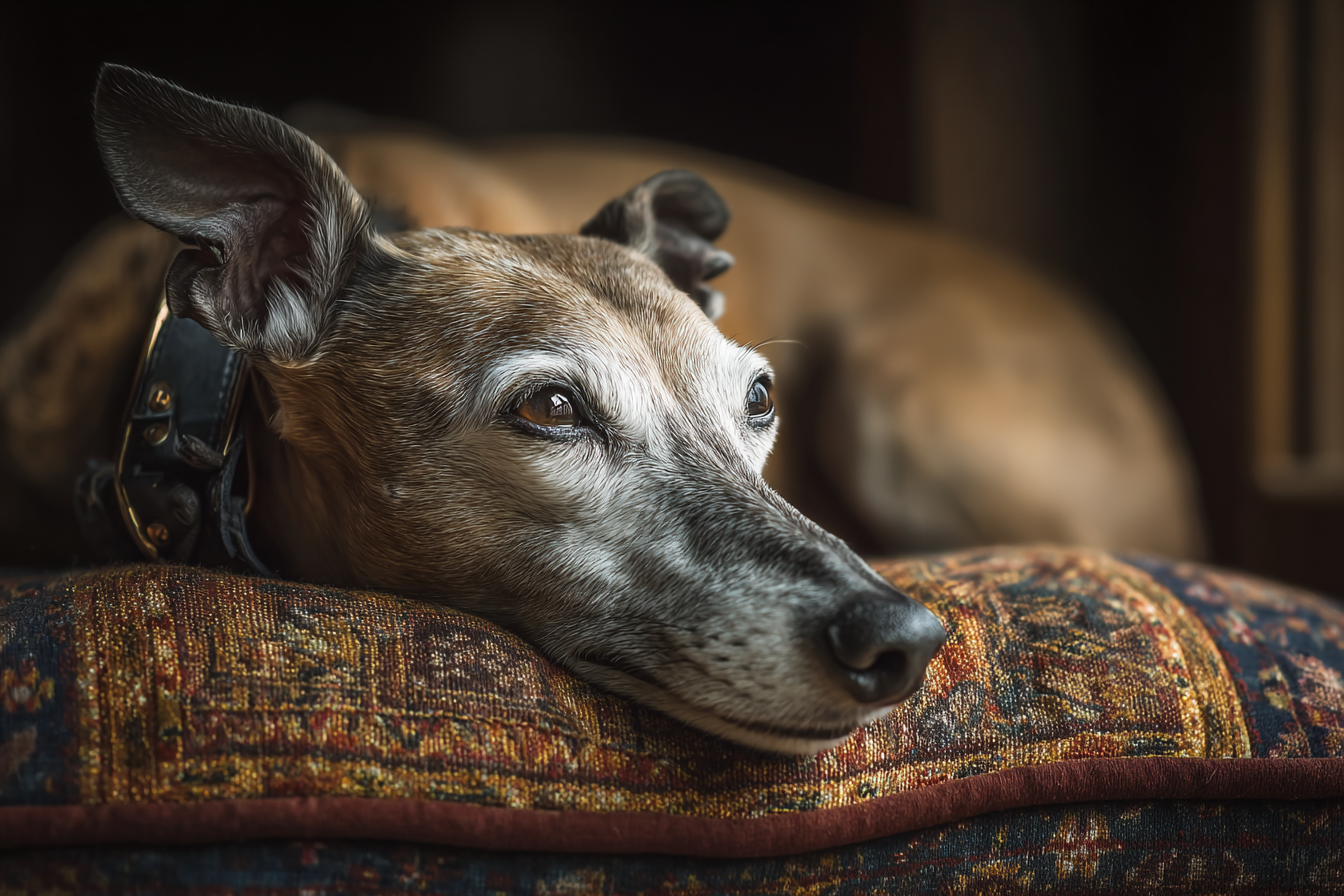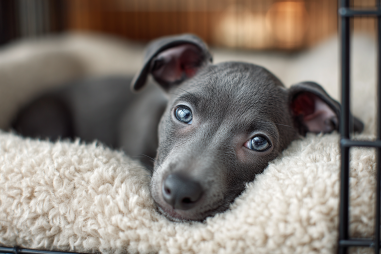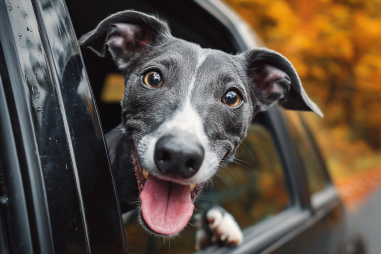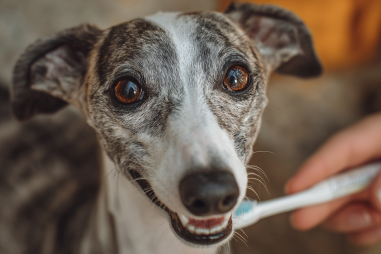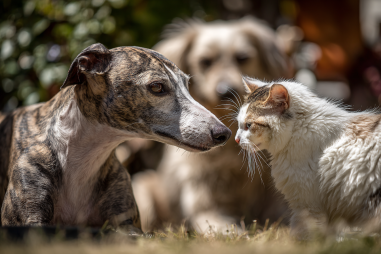Italian Greyhounds are elegant, affectionate companions known for their slender bodies and graceful movements. As with all breeds, understanding their lifespan and the natural aging process is vital to providing the best care as they grow older. By recognizing the signs of aging, adjusting their diet and exercise routines, and ensuring they have the right medical and living environment, you can help your Italian Greyhound enjoy a comfortable and happy senior life. Let’s explore the unique aspects of their aging process and how to support them through every stage of their golden years.
Average Lifespan of Italian Greyhounds
Italian Greyhounds are generally considered a long-lived breed compared to many other dogs of similar size. On average, they live between 12 to 15 years, with some individuals reaching 16 years or more with proper care. Their relatively long lifespan is a testament to their healthy genetics and active lifestyle, but it also means owners need to be prepared for changes as their pets grow older. Longevity can be influenced by factors such as diet, exercise, genetics, and regular veterinary care, so maintaining a proactive approach to their health throughout their life can make a significant difference in how well they age.
Signs of Aging to Monitor
As your Italian Greyhound ages, it’s important to watch for subtle changes that hint at the progression of their senior years. Early recognition of these signs can help you adjust care and seek veterinary advice promptly. Common signs of aging include:
- Decreased energy levels: Your once playful and energetic dog might prefer lounging over chasing toys or going on long walks.
- Joint stiffness and mobility issues: Arthritis and other joint problems can lead to difficulty in moving or climbing stairs.
- Changes in weight and appetite: Senior dogs might lose interest in food or experience weight loss or gain.
- Deterioration of senses: Diminished hearing, vision, or smell is common in older dogs.
- Dental problems: Tooth decay, bad breath, or difficulty chewing can become apparent.
- Behavioral changes: Increased anxiety, confusion, or changes in sleep patterns may indicate cognitive decline.
Regularly monitoring these changes will help you and your veterinarian tailor a care plan to ensure your senior Italian Greyhound remains comfortable and happy.
Adjusting Diet and Exercise for Seniors
Nutritional needs and activity levels shift as Italian Greyhounds enter their senior years. Feeding the right diet and providing appropriate exercise are critical to their health and quality of life.
Diet Adjustments
Older dogs tend to have slower metabolisms and may require fewer calories to maintain a healthy weight. However, they also need nutrient-rich food to support joint health, cognitive function, and energy levels. Consider the following dietary tips:
- Switch to high-quality senior dog food formulated with balanced nutrients.
- Look for foods rich in antioxidants, omega-3 fatty acids, glucosamine, and chondroitin to support joints and brain health.
- Maintain portion control to prevent obesity, which can exacerbate joint problems.
- Provide plenty of fresh water to keep them hydrated and support kidney function.
Exercise Adjustments
While Italian Greyhounds generally enjoy moderate exercise, older dogs benefit from gentler activities that avoid stressing their joints. Daily walks at a comfortable pace, short play sessions, and gentle stretching are excellent ways to maintain mobility without causing injury. Swimming or hydrotherapy can be especially beneficial for senior dogs with arthritis, as it provides a low-impact form of exercise that strengthens muscles without pressure on joints.
Common Senior Health Issues
Just like humans, Italian Greyhounds become more susceptible to certain health conditions as they age. Being aware of these issues helps with early detection and appropriate management.
- Arthritis: Joint inflammation and pain are common in senior Greyhounds, leading to reduced mobility.
- Dental disease: Poor dental health can cause pain, infections, and even systemic health problems.
- Cognitive dysfunction: Similar to dementia in people, this affects memory and behavior.
- Heart conditions: Some Italian Greyhounds may develop heart murmurs or other cardiac issues.
- Kidney and liver disease: Organ function can decline with age, requiring close monitoring.
- Vision and hearing loss: Cataracts or age-related hearing loss can affect their interaction with the environment.
Regular veterinary checkups and early intervention are essential in managing these conditions effectively. Your vet may recommend medications, supplements, or therapeutic approaches tailored to your dog’s specific needs.
Creating a Comfortable Living Environment
As your Italian Greyhound ages, adapting their living space to accommodate their changing needs can improve their comfort and well-being. Here are some ways to create a senior-friendly environment:
- Provide soft, supportive bedding to relieve pressure on joints.
- Use ramps or stairs to help them access favorite resting places without jumping.
- Ensure food and water bowls are easily accessible and at a comfortable height.
- Maintain a warm and draft-free area, since older dogs may have difficulty regulating body temperature.
- Keep their living space free from clutter to prevent accidental falls or injuries.
- Incorporate calming elements such as gentle lighting and familiar toys to reduce anxiety.
Small modifications can greatly enhance your senior dog’s day-to-day comfort, helping them feel safe and relaxed.
Vet Visits and Preventive Care
Routine veterinary visits become even more crucial during your Italian Greyhound’s senior years. Frequent checkups allow your vet to monitor aging-related changes and detect potential health issues early. Preventive care for older dogs often includes:
- Comprehensive physical exams, including heart and dental checks.
- Blood tests and urine analysis to evaluate organ function.
- Vaccinations and parasite prevention tailored to age and lifestyle.
- Dental cleanings to avoid infections and tooth loss.
- Medication and supplements to manage chronic conditions like arthritis.
- Weight and diet assessments to maintain optimal health.
Collaborating closely with your veterinarian ensures your senior Italian Greyhound receives personalized care that addresses their evolving health needs.
Supporting Your Italian Greyhound’s Golden Years
Watching your Italian Greyhound age gracefully is a rewarding journey that requires patience, love, and attention. By understanding their typical lifespan and the inevitable changes that come with aging, you can anticipate their needs and make thoughtful adjustments. Regular health monitoring, a balanced diet, tailored exercise, and a cozy living space help ensure that your beloved dog remains comfortable, happy, and cherished throughout their senior years.
Every senior dog deserves the best quality of life possible. With compassion and proactive care, your Italian Greyhound will continue to be a loyal companion, sharing joyful moments and warm companionship well into their golden years.

